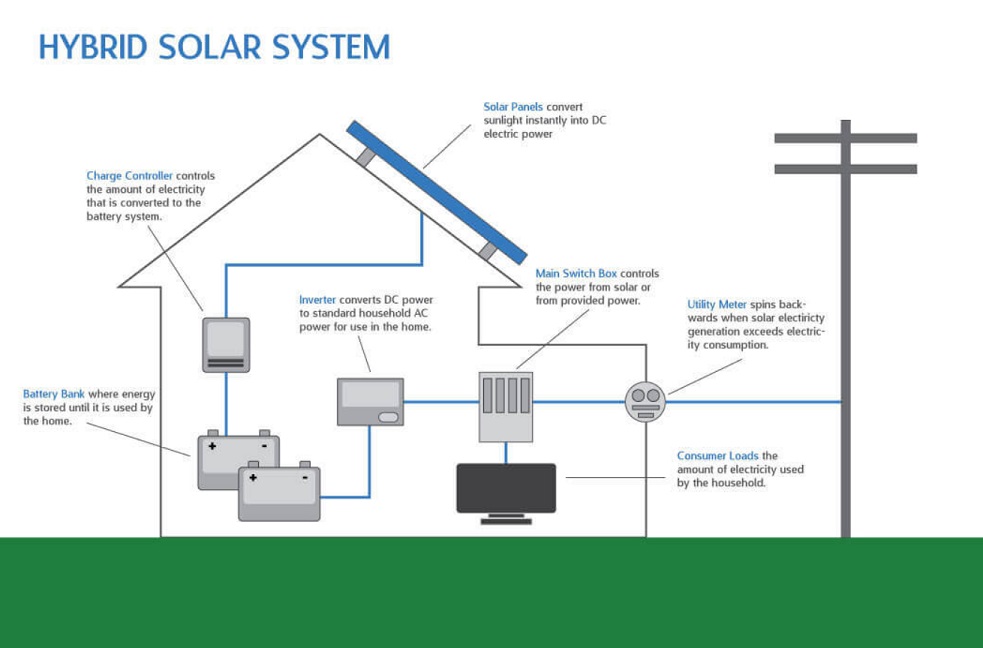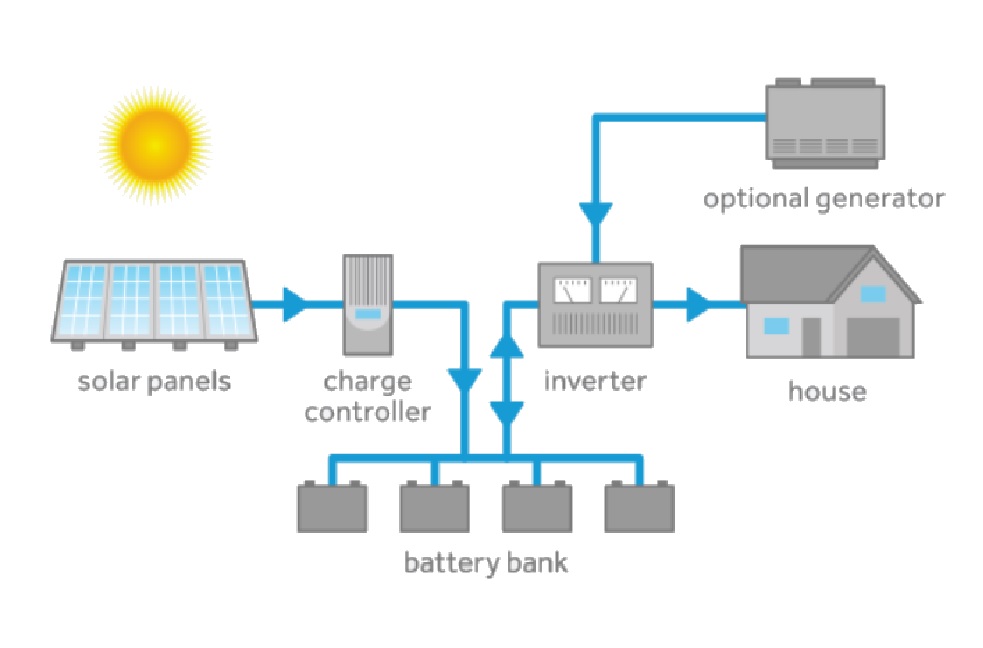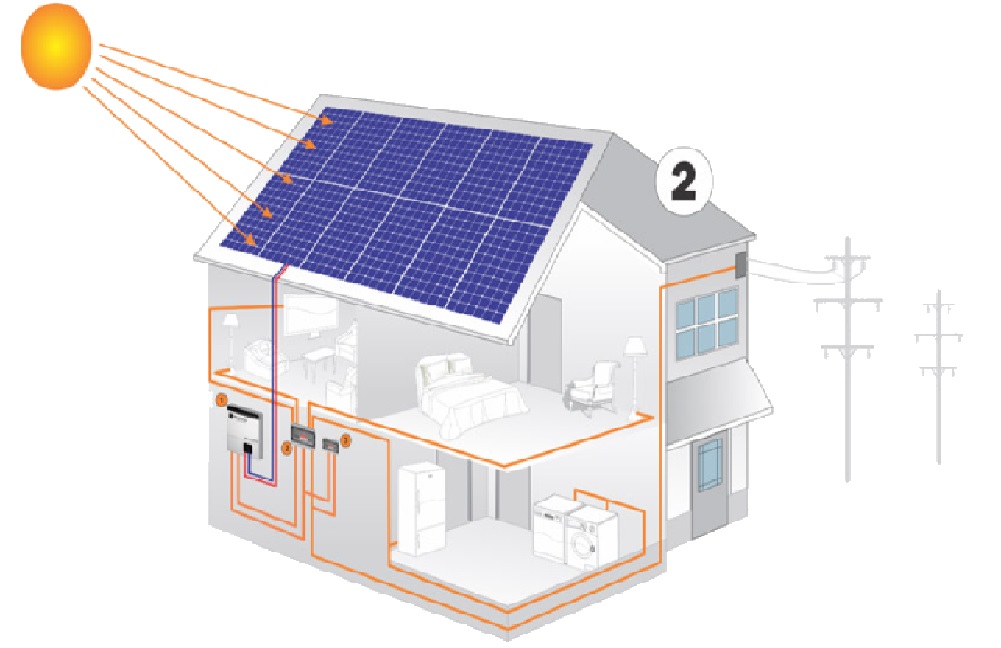Hybrid Solar Power Kits
These Hybrid Solar Power Kits can be used in a multitude of instances. From homes to large-sized businesses.
The Hybrid inverter offers power blending. This means that you can use power from the grid, solar panels AND your batteries at the same time.
It will distribute your load according to what is available. This will lighten your grid load and also ensure that you have constant power.
Some of our Hybrid inverters can be paralleled together and all come in sizes between 5kW – 8kW.
These Hybrid Solar Power Kits offer a greater return on investment. Ensuring you see the difference in your pocket in the least amount of time.
When there is no solar power or grid power, one of these bestselling Lithium Solar Batteries will ensure you have enough power to keep your necessary appliances on.
The Lithium Batteries offer warranties of up to 10 years and can be stacked together, which makes them easy to install. This also allows for gradual growth as and when your needs change.
You have full control over the size of your battery bank.
——————————————————————————————————————————————————
Off-Grid Solar Power Kits
For your convenience, we have selected reputable Off-Grid inverters and paired them with some of South Africa’s favourite Lithium, AGM, Lead carbon and Lead Acid Solar Batteries.
Our staff have built these Off-Grid kits with our clients in mind who are looking for a no-nonsense approach to starting their Solar journey.
We have a range of kit sizes to suit everyone.
You are also able to customise a kit by adding more panels. And, if the storage size is not right for you, you can add extra batteries.
——————————————————————————————————————————————————
Grid-Tied
Grid-Tied Solar Power Kits are used to capture and supply power to your grid connection during sunlight hours. For instance, if your energy use is 4kw at any point and you have a 3kw system it would provide 3kw in peak sun to supplement the power usage and obtain the rest needed from the grid, inevitably reducing your energy bill.
These systems have no battery storage for use at night, however, are a step towards reducing your energy usage with smaller budgets.
——————————————————————————————————————————————————
Load Shedding Kits
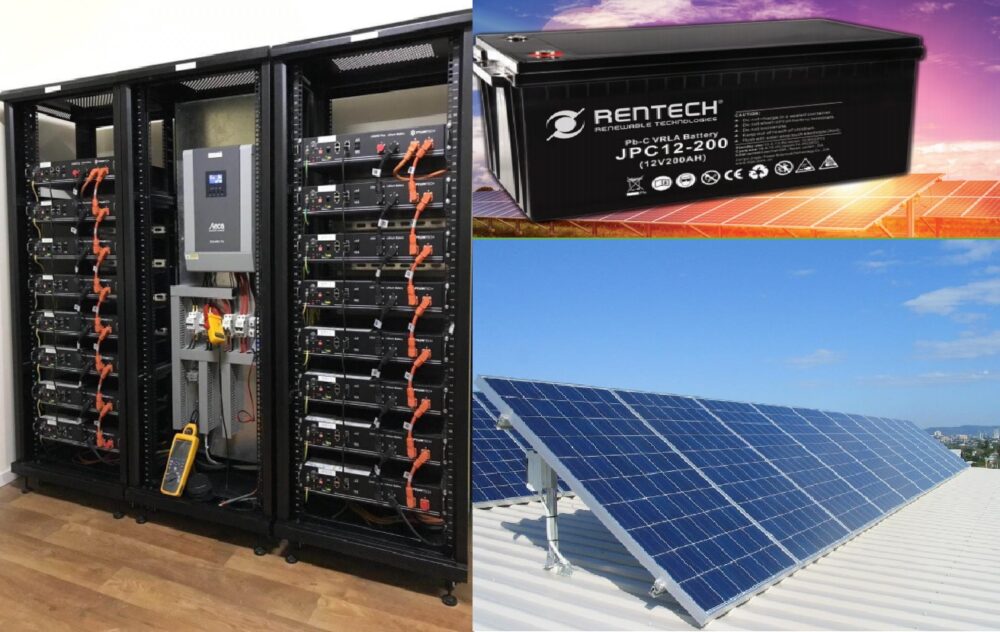
Load Shedding Kit features:
-
If you do not want to install solar panels just yet but need a solution for load shedding
-
Keep your home functional during blackouts.
-
Keep the alarm system on during blackouts.
-
Complete packages for your convenience
-
The most competitive prices for the best brands
-
Hybrid inverters allow you to upgrade the system to solar energy.
-
Batteries can be charged from multiple sources.
——————————————————————————————————————————————————
Load Shedding Kit Components
Inverter
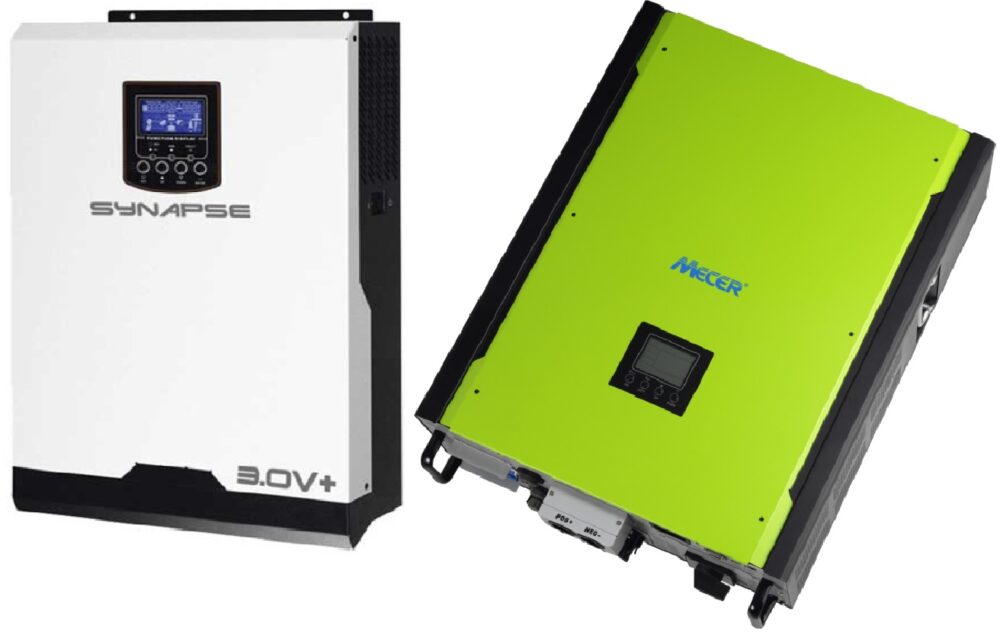
The inverter has the important function of converting energy and making it available for household use. In this case, the inverter also ensures the right current flows into the battery when charging from different sources. Hence the reason why you can always upgrade to solar power after installing a load shedding kit. But you can read more about the different inverter type in our guide.
Batteries
The battery components for our load shedding kits are just as impressive. Choose a budget-friendly AGM model or get the best efficiency with a Pylon lithium option, it is all up to you.
Racks, Brackets, Cables
Every load shedding kit is set up with all the extras. These include the racks and brackets to place the inverter and battery bank, as well as the electrical cables and switch disconnectors for energy regulation. All the things you need to stay powered during a blackout are part of the package.
——————————————————————————————————————————————————
Will Load Shedding Continue to be a Problem?
It is a sad truth that South Africa is facing an energy crisis that can last indefinitely. And for several years now, load shedding has been a tremendous problem. Hence the reason for acting today and speaking with our friendly consultants, because you can still have energy during a blackout.
When purchasing a solar system, you have two main options to choose from – grid-tied and off-grid. As the name implies, grid-tied solar means the solar system is connected to the electrical grid, and off-grid solar means the solar system is not connected to the grid.
In order to pick the right type of system, it is important to list the goals you are hoping to achieve by adding solar energy. Here at LED Light Consult SA (PTY)LTD, we only sell grid-tied solar systems, but we realize it is important to consider the pros and cons of both grid-tied solar and off-grid solar, so you can identify the system that best meets your goals.
——————————————————————————————————————————————————
Grid-tied Solar Systems
A grid-tied solar system is connected to the electrical grid and requires the grid to be running for the solar system to produce energy.
Pros of a Grid-Tied Solar System:
Grid-tied systems tend to be the less expensive option, due to not needing batteries and other equipment.
This type of system is great for those who do not have the room or financing to install a solar system big enough to cover 100% of their energy usage. You can continue to pull electricity from the grid if needed.
Net Metering allows the electricity generated by a solar system to offset the electricity used from the grid during the night or cloudy days.
The grid becomes your cost-effective, reliable storage solution.
Cons of a Grid-Tied Solar System:
If the grid goes down your system will shut off, leaving you without power. This is required to prevent energy from back feeding into the grid to keep utility workers safe. Your grid-tied system will automatically shut off when the grid goes down and will also automatically turn back on when power is restored.
You are not completely independent from the grid.
——————————————————————————————————————————————————
Off-Grid Solar System
Many people like the idea of installing an off-grid solar system because of the independence and the stability the solar system will bring to their lives. However, this is only achievable with the appropriate equipment and batteries.
——————————————————————————————————————————————————
Pros of an Off-Grid Solar System:
Completely independent from the grid
A great solution for remote locations and underdeveloped communities
Cons of an Off-Grid Solar System:
They are more costly.
Batteries are required to deliver electricity consistently throughout the day and night.
It could require a lifestyle change to reduce energy consumption.
Surplus energy production could go to waste.
Cannot rely on the grid at night or on cloudy days.
Batteries require maintenance, have a relatively short lifespan, and degrade rapidly.
——————————————————————————————————————————————————

